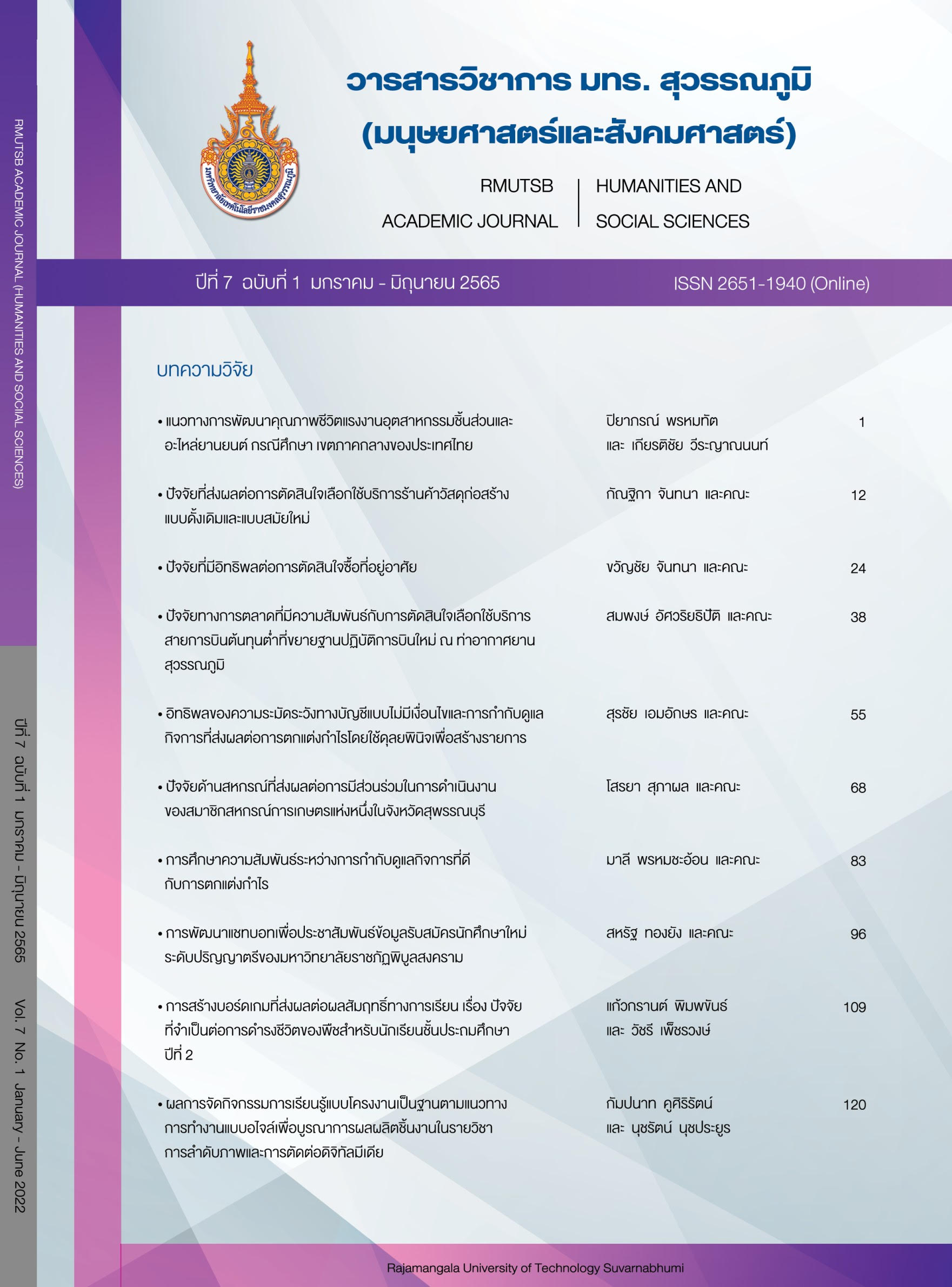The effects of learning activities by project-based learning on agile approach to integrate workpiece productivity in Digital Media Sequencing and Editing Course
Main Article Content
Abstract
The objectives of this research were: 1) to evaluate the effectiveness of students to project-based learning on agile approach, 2) to evaluate the improvement of productivity to project-based learning on agile approach, 3) to evaluate the satisfaction of project-based learning on agile approach to integrate work piece productivity in Digital Media Sequencing and Edition Course. The sampling group included 49 students with purposive sampling in Digital Media Sequencing and Editing Course, 1st semester of academic year 2563, major in animation and multimedia, Bansomdejchaopraya Rajabhat university. The tools in this research were: (1) lesson plans in Digital Media Sequencing and Editing Course, (2) learning achievement score form, (3) Rubric score evaluation form in Practical Skills 4) Satisfaction assessment form. The statistics used in this research were mean and standard deviation. The research results showed that the effectiveness of learning was 0.76, which indicated that the students had increased the knowledge by 76.11 percent, the improvement of student’s productivity was significant, and the satisfaction was at high level (=4.21, S.D.=0.60).
Article Details

This work is licensed under a Creative Commons Attribution-NonCommercial-NoDerivatives 4.0 International License.
References
Bootla, P., Rojanaponpun, O., & Mongkolnam, P. (2015). Necessary skills for scrum’s development team members. Information Technology Journal, 11(2), 34-41. (in Thai)
Dechakup, P., & Yindeesuk, P. (2015). Learning management in the 21st century. Bangkok: Chulalongkorn University Press. (in Thai)
Hiranoon, J. (2019). The development of training curriculum to enhance the 21th century learning skills for bachelor of science in technical education students. RMUTSB Academic Journal (Humanities and Social Sciences), 4(2), 220-231. (in Thai)
KM Child-PBL. (2015). Project-based learning. Retrieved 5 February 2021, from http:// www.vcharkarn .com/
vcafe/202304.
Kongmanus, K. (2016). The development project based learning management model to business competency in education media for undergraduate students technology and communication education. Retrieved January 15, 2021, from, https://tafpublications.com/gip_content/paper/jahss-2.5.5.pdf (in Thai)
Pitipontepin, S. (2015). Management of science learning and society of the 21st century. Bangkok: Neva Education. (in Thai)
Prapin, C., & Kongmanus, K. (2020). The development of computer subject instruction model based on project based learning with social media to enhance information communication and technology literacy for upper primary students. Journal of Education Naresuan University, 21(1), 30-47. (in Thai)
Pressman, R. S. (2010). Software engineering: A practitioner's approach (7th ed.). New York: McGraw-Hill.
Salee, N., Rakbumrung, T., & Laloknum, N. (2020). The development of online lesson using project base of Website design course on website development with HTML language. Journal of Pathumthani University, 12(1), 69-79. (in Thai)
Tiengpromp, K. (2010). Problems/obstacles of working as a team. Retrieved January 13, 2021, from http://www.uptraining.co.th/index.php/knowledge-2/239-teamwork6.html (in Thai)


